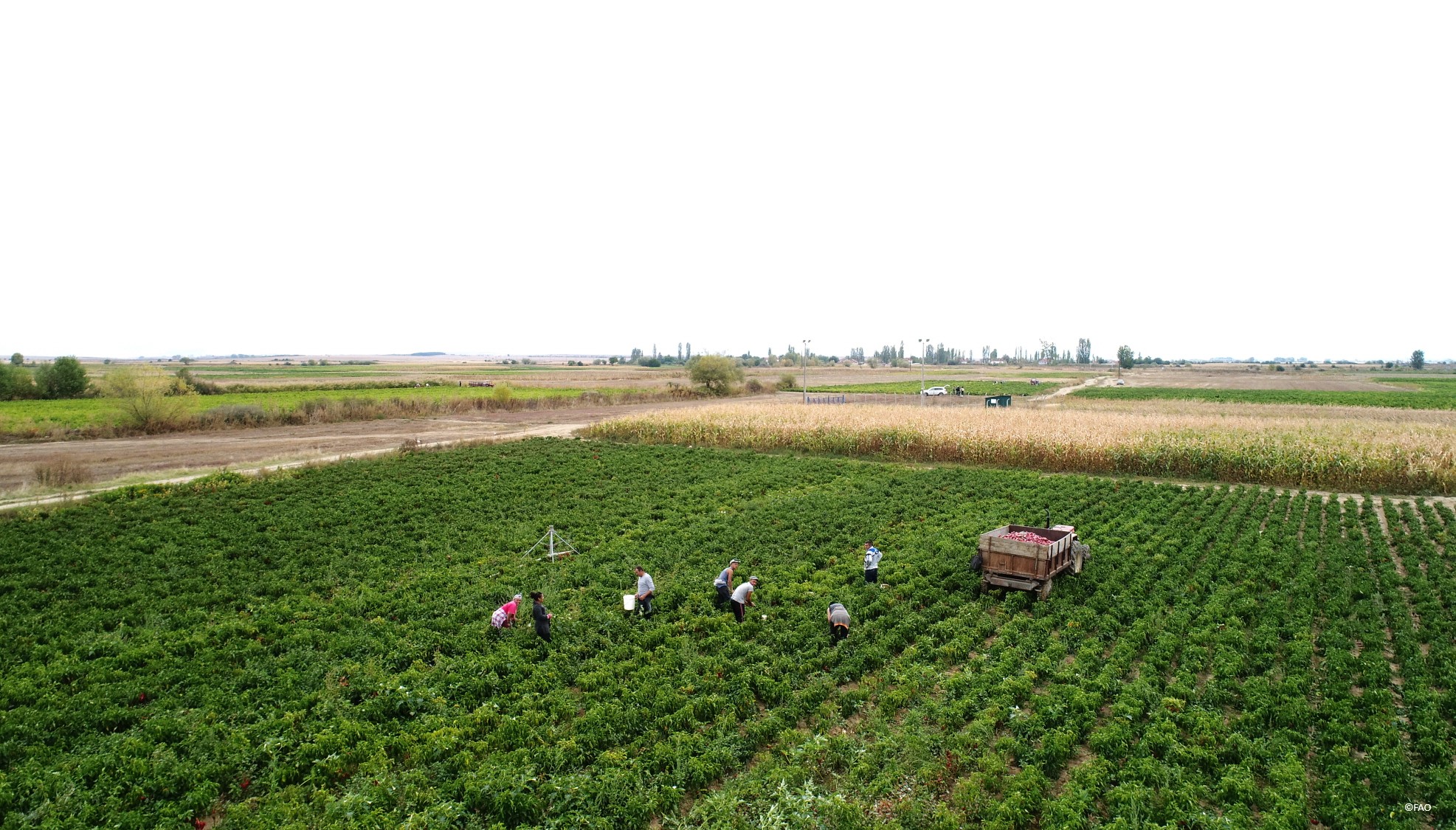FAO continues push to address land abandonment in North Macedonia

The abandonment of agricultural land in North Macedonia is a pressing concern, with approximately 32 percent of arable agricultural land in the country having been abandoned – a much higher rate than in most other European countries.
Land abandonment has significant implications for North Macedonia, including environmental degradation and lost opportunities to boost sustainable food production and address rural poverty.
Continuing its efforts to address this issue, the Food and Agriculture Organization of the United Nations (FAO) and the Macedonian Ministry of Agriculture, Forestry and Water Economy held a workshop in Skopje on 17 February to bring together FAO experts and representatives from the ministry’s Land Policy Working Group to discuss solutions.
During the workshop, attendees discussed a forthcoming FAO report on farm structures, land market development and land abandonment – one outcome of an FAO project in North Macedonia to support the development of agriculture land markets and, ultimately, bring abandoned land back into production.
“The insights gained by the ministry into the situation with abandoned agricultural land in the country are very useful for the purpose of the amendments to the Law on Agricultural Land, currently under preparation,” said Dragancho Stojchev, State Legal Adviser at the Macedonian Ministry of Agriculture, Forestry and Water Economy, in his opening remarks. “We believe that the findings of the FAO analysis and the recommendations provide an excellent basis for the ministry to develop a comprehensive set of policy interventions to address land abandonment and improve the inefficient farm structures.”
The current land turnover in the agricultural sales land market – 0.5 percent of total agricultural land, or around 1 700 ha – is too low to address the farm structure challenges in the country, according to the FAO analysis. Policy responses should prioritize the development of agricultural land markets and focus on increasing turnover and promoting land mobility to enable farm expansion, provide new and young farmers with access to land, and offer opportunities for the development of small farms into commercial family farms.
The report identifies several root causes of land abandonment, including:
- the basic natural conditions of the land parcels;
- farm structures with small average farm sizes and excessive land fragmentation;
- dependence on irrigation and poorly functioning irrigation schemes; and
- other economic reasons leading to outmigration of youth from rural areas and, eventually, to land abandonment.
Morten Hartvigsen, FAO Land Tenure Officer, emphasized that this comprehensive analytical work is a positive step towards identifying and monitoring abandoned agricultural land – a precondition for any other measures and actions to address the issue. FAO recommends a holistic package of policy interventions to address land abandonment and improve farm structures, he said. Integrated policy responses and interventions should combine land policy with other related areas, such as agriculture, economics and taxation, ultimately contributing to greater profitability for family farms and increased incomes and livelihoods in rural areas.
FAO has been working on land consolidation in the region for years, supporting agricultural land market development and improved management of state agricultural land in line with the Voluntary Guidelines on the Responsible Governance of Tenure of Land Fisheries and Forests in the Context of National Food Security.
03 March 2022, Skopje, North Macedonia
